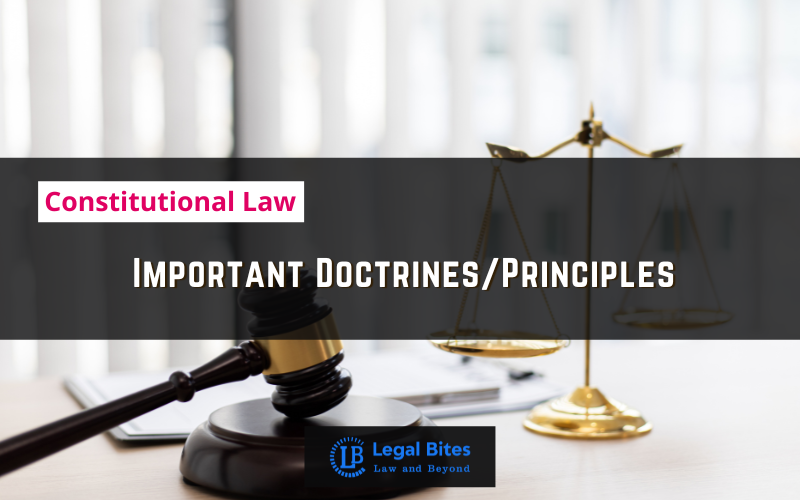‘Arbitrariness and equality are sworn enemies”. Explain.
Find the answer to the mains question of Constitutional Law only on Legal Bites.;

Question: ‘Arbitrariness and equality are sworn enemies”. Explain. [UPJS 2003] Find the answer to the mains question of Constitutional Law only on Legal Bites. [‘Arbitrariness and equality are sworn enemies”. Explain.] Answer Equality is a fundamental cornerstone of Indian democracy, enshrined in Articles 14 to 18 of the Indian Constitution. It ensures equality before the law and equal protection of laws for all individuals, reflecting the principle of the Rule of Law. The...
Question: ‘Arbitrariness and equality are sworn enemies”. Explain. [UPJS 2003]
Find the answer to the mains question of Constitutional Law only on Legal Bites. [‘Arbitrariness and equality are sworn enemies”. Explain.]
Answer
Equality is a fundamental cornerstone of Indian democracy, enshrined in Articles 14 to 18 of the Indian Constitution. It ensures equality before the law and equal protection of laws for all individuals, reflecting the principle of the Rule of Law. The doctrine of equality before the law is an essential feature of the Constitution, promoting fairness and justice in governance.
The Supreme Court, in the landmark judgment of E.P. Royappa v. State of Tamil Nadu (AIR 1974 SC 555), emphasized that "arbitrariness and equality are sworn enemies." The Court declared that equality is a dynamic concept with multiple facets, extending beyond rigid and traditional interpretations. It explained that equality, by its very nature, opposes arbitrariness, as the former is a hallmark of constitutional governance, while the latter signifies the whims of unchecked power.
The Court elaborated that any arbitrary action is inherently unequal, violating both constitutional principles and political logic. Consequently, arbitrariness is incompatible with Article 14, which prohibits discriminatory and arbitrary state actions. The judgment reinforced that Article 14 ensures fairness and mandates the application of reasonable, non-arbitrary procedures in state actions.
In the case of Shrilekha Vidyarthi v. State of Uttar Pradesh (1991), the Supreme Court held that Article 14 applies even to government policies and contractual matters. Any policy or action that fails the test of reasonableness is unconstitutional. This judgment extended the scope of Article 14, ensuring that arbitrariness has no place in governance, whether in administrative, legislative, or contractual domains.
Moreover, the principles of reasonableness and fairness, integral to Article 14, also underpin the procedures contemplated under Article 21. For any state action to pass constitutional scrutiny, it must be just, fair, and reasonable, avoiding arbitrary, fanciful, or oppressive conduct.
The judiciary has consistently reaffirmed that equality is the bedrock of the Constitution, striking down arbitrariness in any form. By ensuring that all actions adhere to the principles of reasonableness and fairness, the courts have upheld the sanctity of Article 14 and the Rule of Law, safeguarding democracy against the threats of arbitrary governance.
Important Mains Questions Series for Judiciary, APO & University Exams
- Constitutional Law Mains Questions Series Part-I
- Constitutional Law Mains Questions Series Part-I
- Constitutional Law Mains Questions Series Part-II
- Constitutional Law Mains Questions Series Part-IV
- Constitutional Law Mains Questions Series Part-V
- Constitutional Law Mains Questions Series Part-VI
- Constitutional Law Mains Questions Series Part-VII
- Constitutional Law Mains Questions Series Part-VIII
- Constitutional Law Mains Questions Series Part-IX
- Constitutional Law Mains Questions Series Part-X



